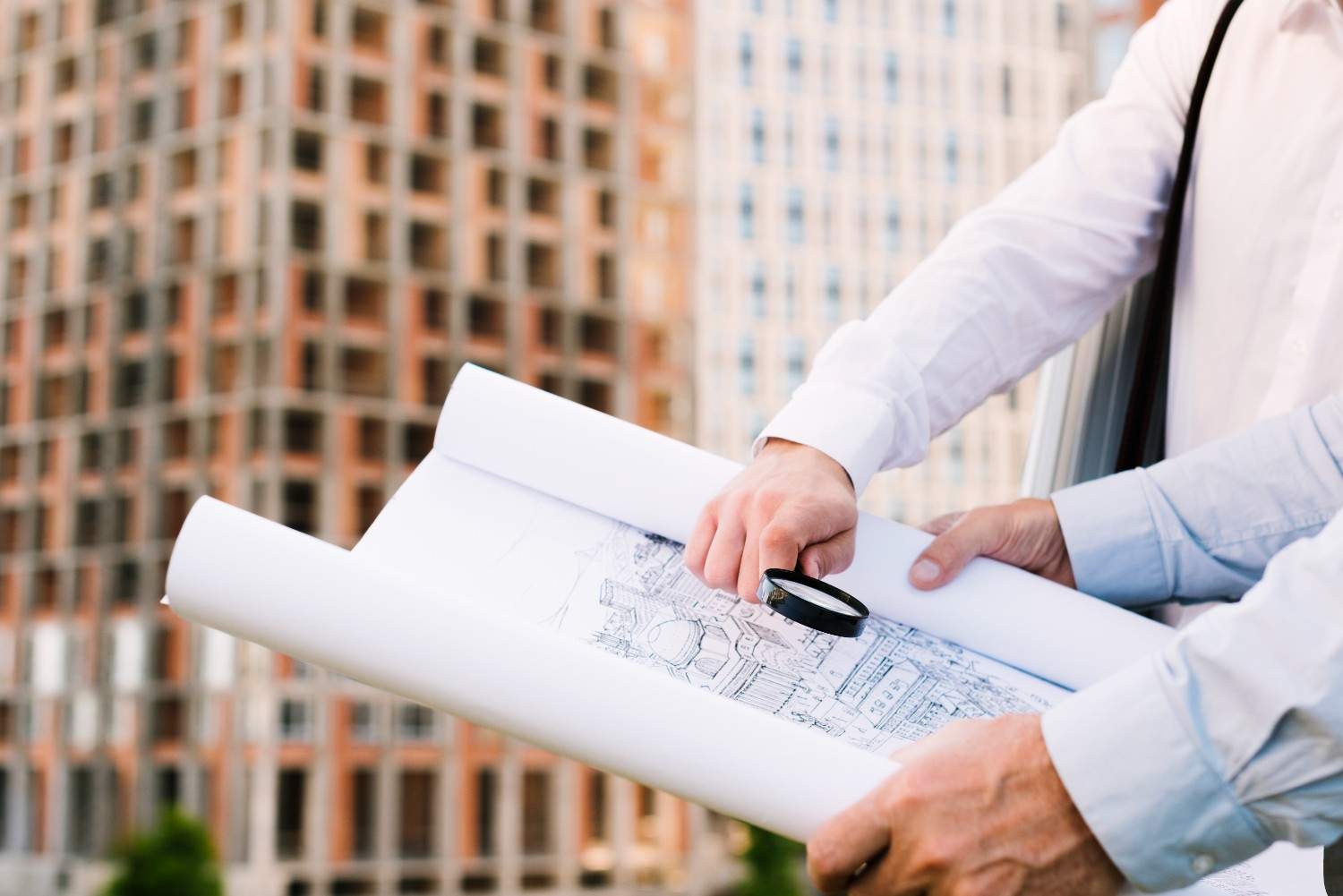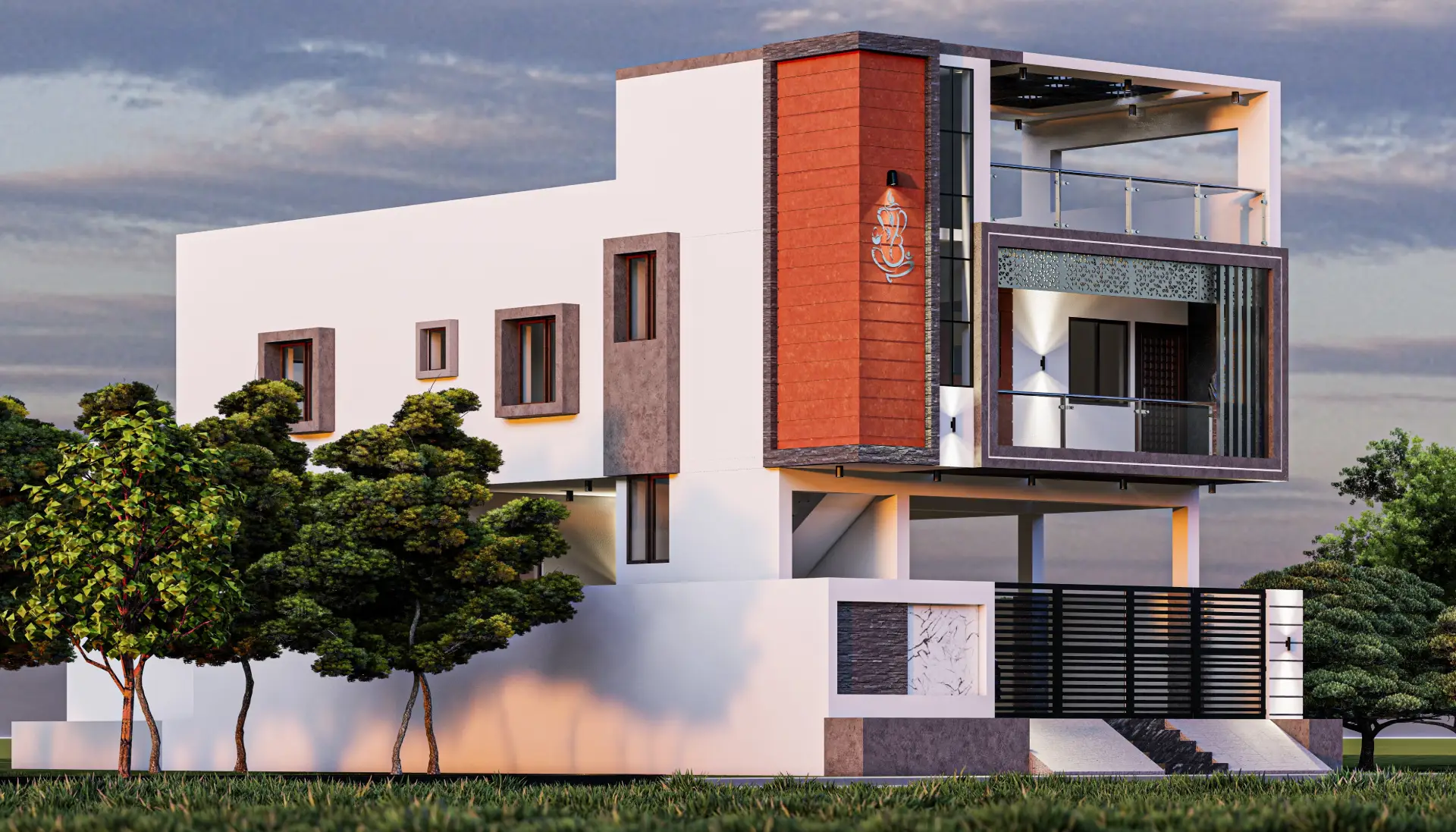
Step-by-Step Guide to Building Plan Approval in Chennai
Building a house or commercial space in Chennai requires proper approval from the concerned authorities. This process, known as building plan approval, ensures that the proposed construction adheres to safety regulations, land-use norms, and zoning laws. Without approval, structures may face demolition, penalties, or legal action.
Chennai has strict planning permission rules governed by the Chennai Metropolitan Development Authority (CMDA), Greater Chennai Corporation (GCC), and Directorate of Town and Country Planning (DTCP). Whether you are constructing a residential house, a commercial building, or an industrial complex, you must obtain approval before starting any construction work.
This guide provides a detailed step-by-step process to obtain building plan approval in Chennai, ensuring that your project complies with government regulations and avoids unnecessary legal troubles.
What is Building Plan Approval?
Definition and Purpose
Building plan approval is a legal process where the government verifies and approves a proposed construction plan based on local development norms, safety regulations, and environmental guidelines. The primary objectives are:
- Ensuring structural stability and safety
- Preventing unauthorized construction
- Regulating land use and urban planning
Legal Implications of Building Without Approval
Constructing a building without proper approval can lead to:
- Hefty fines imposed by the local authorities
- Demolition orders if the construction violates zoning regulations
- Difficulties in obtaining loans and utilities (water, electricity, etc.)
- Legal disputes over unauthorized construction
It is crucial to obtain approval before starting any construction to ensure compliance with the law.
Regulatory Authorities for Building Plan Approval in Chennai
Different government bodies oversee the building plan approval process depending on the location and type of construction.
1. Chennai Metropolitan Development Authority (CMDA)
- Responsible for approving major construction projects in metropolitan Chennai
- Covers residential, commercial, and large-scale developments
2. Greater Chennai Corporation (GCC)
- Manages approval for smaller residential and commercial buildings within Chennai city limits
- Issues approvals based on zoning laws and safety norms
3. Directorate of Town and Country Planning (DTCP)
- Approves building plans in suburban and rural areas of Chennai
- Ensures land use compliance in non-urban zones
Understanding which authority to approach is the first step in getting your building plan approved.
Types of Building Plan Approvals in Chennai
1. Residential Building Approvals
- Required for individual houses, apartment complexes, and gated communities
- Compliance with Floor Space Index (FSI) and setback rules is mandatory
2. Commercial Building Approvals
- Includes office buildings, shopping complexes, and malls
- Additional approvals required for fire safety and parking facilities
3. Industrial Building Approvals
- Covers factories, warehouses, and manufacturing plants
- Environmental clearance may be required for pollution control
Each category has specific regulations that must be followed to obtain approval.

Eligibility Criteria for Building Plan Approval
To qualify for building plan approval in Chennai, you must meet the following criteria:
1. Minimum Square Footage Requirements
- The minimum land area required for approval varies based on the zone and type of construction
- For residential plots, a minimum of 600 sq. ft. may be required
2. Land Use Classification and Zoning Laws
- The proposed site must conform to Chennai’s Master Plan and zoning regulations
- Certain areas are restricted for commercial or industrial construction
Failure to meet eligibility criteria can result in the rejection of the application.
Documents Required for Building Plan Approval
To apply for approval, you must submit the following documents:
- Property ownership documents (Sale deed, Patta, or Lease agreement)
- Land Survey and Site Plan
- Building Layout and Elevation Drawings
- No Objection Certificates (NOCs) from relevant departments (Fire, Environmental, etc.)
- Structural Stability Certificate from a licensed engineer
Having all the necessary documents ready can speed up the approval process.
Step-by-Step Process for Obtaining Building Plan Approval in Chennai
Step 1: Land Classification Verification
Check if the proposed site falls within a permissible land-use zone as per the Chennai Master Plan.
Step 2: Preparing and Submitting the Application
Submit an application with detailed building plans to the appropriate regulatory body (CMDA, GCC, or DTCP).
Step 3: Scrutiny and Site Inspection
Authorities will inspect the site and verify the submitted documents.
Step 4: Clearance from Authorities
Additional approvals may be required from departments like Fire, Environmental, and Pollution Control Board.
Step 5: Final Approval and Fee Payment
Upon approval, pay the required fees and obtain the official building permit.
Fees and Charges for Building Plan Approval in Chennai
The cost of obtaining building plan approval in Chennai varies depending on the type and size of the construction project. Here’s a breakdown of the common charges involved:
1. Calculation of Approval Fees
The fees for approval are determined based on:
- Type of building (residential, commercial, industrial)
- Plot size and built-up area
- Number of floors
- Location (urban or rural areas)
- Additional facilities (parking, lifts, fire safety, etc.)
The Chennai Metropolitan Development Authority (CMDA) and Greater Chennai Corporation (GCC) calculate these fees per square foot of construction.
2. Typical Fee Structure for Building Plan Approval
| Building Type | Approximate Fee per Sq. Ft. |
|---|---|
| Residential (Individual House) | ₹10 – ₹50 per sq. ft. |
| Apartment Complex | ₹50 – ₹100 per sq. ft. |
| Commercial Building | ₹100 – ₹500 per sq. ft. |
| Industrial Building | ₹500 – ₹1,000 per sq. ft. |
3. Online Payment Methods
Applicants can pay the approval fees online via:
- The CMDA online portal (https://www.cmdachennai.gov.in)
- Greater Chennai Corporation’s e-payment system
- Bank payment gateways linked to the regulatory authorities
Payments can be made using credit cards, debit cards, net banking, and UPI transactions.

How to Apply for Building Plan Approval Online?
With digital transformation, the Chennai government has simplified the approval process by introducing an online application system. Here’s a step-by-step guide:
Step 1: Visit the Official Website
Go to the respective regulatory body’s portal:
- CMDA Website: https://www.cmdachennai.gov.in
- Greater Chennai Corporation (GCC) Portal: https://www.chennaicorporation.gov.in
Step 2: Register and Login
- Create an account by providing your email ID, mobile number, and Aadhaar details.
- Login to your account using the OTP verification method.
Step 3: Fill in the Application Form
Enter details such as:
- Property details (survey number, address, land use zone)
- Building type (residential/commercial/industrial)
- Architectural drawings and structural plan uploads
Step 4: Upload Required Documents
Scan and upload necessary documents, including:
- Property ownership proof
- Site plan and floor plan
- No Objection Certificates (NOCs)
Step 5: Pay the Fees Online
After submitting the documents, proceed with the online payment.
Step 6: Site Inspection and Approval
Authorities will review the application, conduct site inspections, and approve or request modifications.
Once the plan is approved, you will receive the building permit digitally, which can be downloaded and used for further construction processes.
Common Reasons for Rejection of Building Plan Approval
Not all building plan applications get approved in the first attempt. The common reasons for rejection include:
1. Violation of Zoning Laws
- Constructing in a restricted or non-permissible land zone.
- Failing to adhere to the Floor Space Index (FSI) regulations.
2. Insufficient Documentation
- Missing land ownership proof, NOCs, or structural safety reports.
- Unclear or incomplete architectural drawings.
3. Structural Safety Concerns
- Poor construction planning that does not meet earthquake or fire safety norms.
- Lack of environmental clearance for large-scale projects.
How to Rectify a Rejected Application?
- Reapply after modifying the plan as per regulatory requirements.
- Submit missing documents or necessary NOCs.
- Consult with a certified architect or civil engineer for corrections.
How to Modify or Revise a Building Plan After Approval?
Sometimes, homeowners or builders need to modify the approved building plan due to design changes or regulatory compliance. The process for revising an approved plan includes:
Step 1: Apply for Plan Modification
- Submit a request to the CMDA or GCC stating the required modifications.
- Provide a revised site and building plan.
Step 2: Pay Additional Fees
- Modification charges apply depending on the scale of changes.
Step 3: Inspection and Approval
- Authorities will review the revised plan, conduct an on-site inspection, and provide final approval.
Without proper modification approval, unauthorized changes may lead to penalties or demolition orders.
Consequences of Constructing Without Building Plan Approval
Many homeowners wonder if they can build without obtaining a plan approval. However, the consequences of doing so can be severe.
1. Legal Penalties and Fines
- Unauthorized constructions are liable to heavy fines imposed by the government.
- The fines range from ₹50,000 to ₹10,00,000 based on the size of the building.
2. Demolition Risks
- Unauthorized buildings may be demolished without compensation.
- Court cases and legal disputes can delay or halt construction permanently.
3. Problems in Property Transactions
- Selling a property without approval is illegal.
- Banks will not approve home loans for unauthorized buildings.
How Long Does It Take to Get Building Plan Approval in Chennai?
The approval process varies based on multiple factors such as plot size, land location, and regulatory workload.
1. Standard Timeline for Approval
| Approval Stage | Estimated Time |
|---|---|
| Application Submission | 1-2 Weeks |
| Site Inspection | 2-3 Weeks |
| Plan Scrutiny & Review | 3-4 Weeks |
| Final Approval | 1-2 Weeks |
| Total Time | 6-10 Weeks |
2. Factors That Can Delay Approval
- Incomplete applications or missing documents.
- High backlog of applications at regulatory offices.
- Discrepancies in land use classification.
For a faster approval process, ensure that all documents are in order and meet zoning laws before applying.

Is Building Plan Approval Mandatory for Home Loans?
Yes! If you are planning to apply for a home loan in Chennai, having an approved building plan is mandatory.
1. Why is Approval Necessary for Home Loans?
- Banks and financial institutions require legal verification before sanctioning loans.
- Without approval, the property cannot be mortgaged.
- Unauthorized buildings do not qualify for bank funding.
2. Documents Required for Home Loan Application
- Approved building plan copy.
- Land title and property documents.
- Completion certificate (for constructed properties).
Conclusion
Obtaining building plan approval in Chennai is a crucial step to ensure that your construction follows government regulations, safety norms, and land-use policies. Whether building a house, an apartment, or a commercial space, getting approval prevents legal troubles and financial losses.
By following the step-by-step guide outlined above, homeowners and builders can navigate the approval process smoothly and complete their projects without delays.
Contact Bluemoon Construction to get plan approval from the government for both residential and commercial construction.
Frequently Asked Questions (FAQs)
1. How to get approval for a building plan in Chennai?
Submit your building plan to CMDA or GCC, provide required documents, pay fees, and get site inspection done for final approval.
2. What is the minimum square footage for building plan approval in Chennai?
It varies by zoning laws, but typically 600 sq. ft. is required for residential plots.
3. Can we build a house without plan approval in Chennai?
No, unauthorized buildings can be fined or demolished.
4. How to pay online for building plan approval in Chennai?
Use CMDA or GCC’s official portals and pay via credit card, debit card, or net banking.
5. Is building plan approval mandatory for a home loan?
Yes, banks require an approved plan to process home loans.



